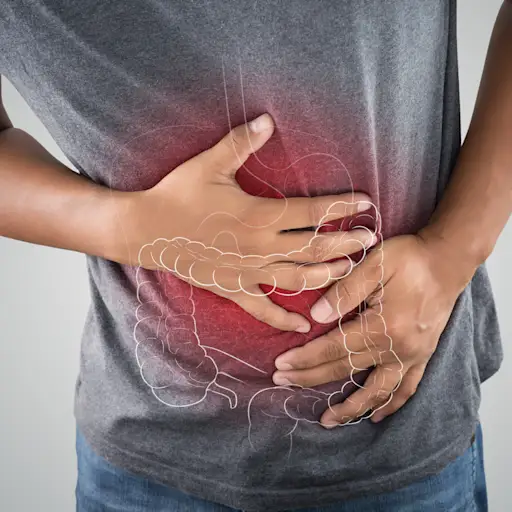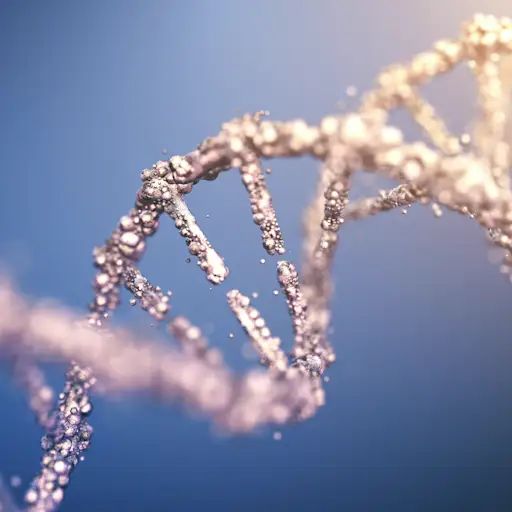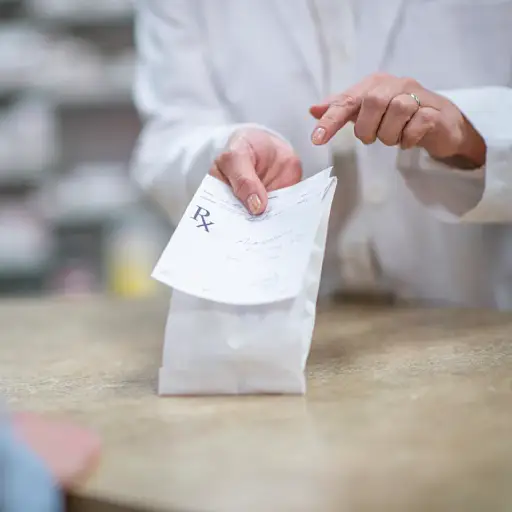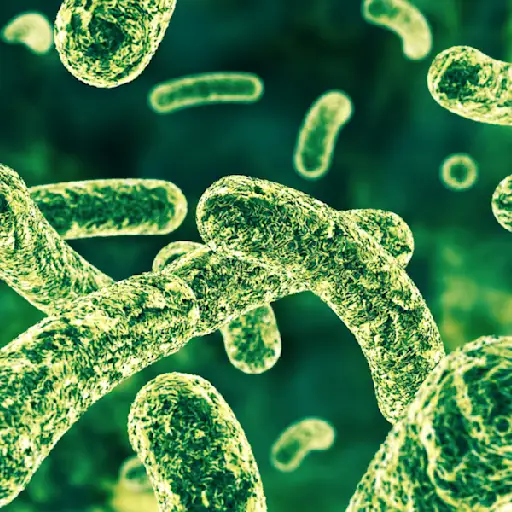9 Common UC Myths, Debunked

If you’ve justbeen diagnosed with ulcerative colitis (UC) or know someone who just found out they have this inflammatory bowel disease, you know that the condition, which stems from inflammation in the lining of the colon that prompts ulcers to form, can be daunting.
When you add the intricacies of this chronic condition to the fact that a whopping three million Americans have inflammatory bowel diseases, including UC and Crohn’s disease, you have a formula for mounting misconceptions.
Read on as we share some of those myths—and facts—about UC.

Myth: UC Symptoms Start in Childhood
Unlike some diseases which can appear either in childhood or adulthood, UC appears to be a disease that arrives at two very different decades of life (though it can, of course, be diagnosed at any age). “We’ve noticed two UC age peaks of onset,” says Jasmine Dukandar, M.D., a gastroenterologist at Florida Digestive Health Specialists in Sarasota, FL. “The first peak of onset tends to be among patients who are in their second to third decade of life. Interestingly, the second peak are usually patients in their sixties who were once perfectly healthy and then come in with new onset GI symptoms in their sixth decade.”

Myth: You Ate Too Much Fried Food
It’s easy to blame yourself for getting UC but there’s no truth to that. Sure, dairy, caffeine, alcohol, fried, fatty and spicy foods as well as certain condiments, cabbage, broccoli and artificial flavorings can trigger UC symptomsafteryou’ve been diagnosed.
“Patients often tell me that they think their bad eating habits when they were younger caused UC,” Dr. Dukandar says. But really, “this has no direct correlation to UC.”
Since it’s important to know what foods affect your condition, you’ll likely discuss your symptoms and pattern of flares with your gastroenterologist on a regular basis.

Myth: There's Only One Cause for UC
Experts believe that UC stems from a combination of factors, including genetics, environment, diet, and an overactive immune system. While the immune system protects us from infection, in UC, it also attacks the lining of the colon. “As a GI community we’re also trying to understand the causes of this disease and, so far, we haven’t been able to pinpoint one thing in particular,” says Dr. Dukandar.

Myth: Genes Don't Play Much of a Role in UC Risk
It’s interesting to note that 8% to 14% of people have a family history of UC, according to theNIH. “Since UC symptoms are due to a dysregulation of the inflammatory response, the question is what determines that dysregulation,” says Jan Novak, M.D., a gastroenterologist and clinical professor of medicine at the University of Buffalo, who specializes in treating patients with UC. “We know that the immune system is genetically predetermined and that the people that have inflammatory bowel disease largely inherit a genetic predisposition which is then modified by their environment.” Currently, however, there isn’t one identifiable gene that causes UC. “This looks different from, say, cystic fibrosis where there is a genetic defect,” Dr. Novak says.

Myth: UC Is Just Like Crohn’s
While both UC and Crohn’s are considered to be related inflammatory bowel diseases, there are some notable differences between the two, including the fact that they can affect different parts of the GI tract. “They have differences in the extent of the involvement of the wall of the GI tract or colon,” says Dr. Dukandar. “The reason I think there’s an overlap in the way people think of these two conditions is because a lot of the medications we have are used to treat both.”

Myth: Treatment Options for UC Are Limited
In the past 30 years, several drug regimens have emerged that can help manage symptoms, handle flares, and lead to remission in some patients, Dr. Dukandar says. “In the past, we didn’t have optimal medications to treat UC,” she says. “Since then, we’ve made really great advancements when it comes to medical and surgical management.” The medications that can stop or ease symptoms by reducing inflammation in the intestine include: Anti-inflammatory drugs, corticosteroids to decrease inflammation, immunomodulators (they work to reduce immune activity) and biologics (these target a protein made by the immune system to help decrease inflammation).

Myth: You Can't Live a Full Life
Yes, the symptoms of UC are debilitating and can include bloody and mucus diarrhea, little advance warning before a bowel movement, a frequent sensation of needing to have a bowel movement, and waking from sleep to have a bowel movement. However, you can absolutely have a normal life, says Dr. Thomas. “People with UC can achieve remission with modern-day treatments and enjoy excellent quality of life—functioning normally in school and work and raising families."

Myth: You’ll Be on the Same Medication Forever
Fact is, you may need to try a number of treatment options, including biologics, since they work in different ways. “Most people will get into remission and if you don’t, we move on to the next one,” says Dr. Novak. “It’s important to understand that each focuses on targeting specific parts of the immune response that we believe are dysregulated in UC.”
This is why it’s important to partner with your gastroenterologist to discuss, in great detail, about a change or switch in medication. “I always advise UC patients to remember that this is a lifelong disease. That’s why it’s so important to be judicious with your medication management and work side by side with gastroenterologist.”

Myth: There's No New UC Research Happening
反之!的进步,诺瓦克博士是most excited about research into the effect of gut bacteria on UC patients. “Some of the bacteria in our guts doesn’t do anything,” he says. “It lives there in harmony with our body and helps us. But the fact that someone with UC loses that recognition and overreacts to what would otherwise be friendly bacteria is fascinating and something that is being widely studied right now.”
In fact, a recent study byStanford University School of Medicinelinked UC to a missing microbe that makes metabolites (called secondary bile acids) that help keep the gut healthy. It's findings like this that will transform the way UC is treated (and maybe even cured!).
- UC and Gut Microbiomes:Cell Host & Microbe. (2020.) “Dysbiosis-Induced Secondary Bile Acid Deficiency Promotes Intestinal Inflammation.”https://www.cell.com/cell-host-microbe/fulltext/S1931-3128(20)30062-7
Lambeth Hochwald is a consumer lifestyle reporter covering health, fitness, marriage and family.

